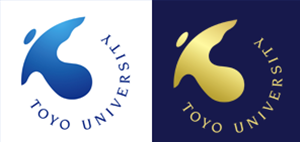What is Toyo University?
Founded in 1887, Toyo University is the only private university in Japan that puts “philosophy education” into practice. Its predecessor, Philosophy Academy, was a product of the social circumstances that existed in Japan at that time of its foundation. Its founder, the philosopher Enryo Inoue, was alarmed at how the Japanese public was being swept away by rapid changes in values as new cultures from the West pressed in following Japan’s opening to the world. He thus established Philosophy Academy as a place where “philosophy education,” which enables students to develop their own perspectives and insights, is respected.
In today’s society, which is marked by increasing globalization and the intermingling of various cultures and values, Toyo University reaffirms the importance of “philosophy education” as a pursuit that cultivates the ability to examine the essence of things and establishes the foundation of the individual.
Toyo University sees “philosophy education” as the encountering of phenomena with an inquisitive mind; in other words, with the question “Why?” Even more specifically, it defines philosophy education as the repeated practice of deep thought aimed at discovering true nature. The university engages in character-building that has this “philosophy education” as its basis. It also stresses “philosophy education” as the foundation for learning in all areas of specialized education and makes lectures on this topic a part of all academic coursework.
Today, Toyo University’s educational slogan is “development of global human resources (i.e., 'human assets').” In light of its selection as a “Super Global University” by the Ministry of Education, Culture, Sports, Science and Technology in 2014, it is introducing new educational programs and making further efforts to internationalize itself.
Toyo University’s goal is to develop “human assets” possessing the ability to thrive in not only Japan but any region or society of the world following graduation. With this in mind, it gives students comprehensive skills that are supported by three pillars: “philosophy education,” “globalization,” and “career preparation.” It is thus starting a new “basic education program” by reinforcing and reorganizing its liberal arts education to link these three pillars.
The three pillars supporting “global human assets”
Toyo University is developing “global human assets” on three “pillars of education, ”namely“philosophy education,” “globalization,” and “career preparation.” To succeed in an age when values are constantly diversifying, people must possess not only academic knowledge but also the ability to identify problems and the ability to solve them. They must also have an international perspective, a well-developed sense of human compassion, and the ability to express themselves to the world so that they may accept other cultures and interact with people from various backgrounds.
In 2014 Toyo University was selected as a “Top Global University” by Japan’s Ministry of Education, Culture, Sports, Science and Technology. Thus, for the next 10 years, it will serve as an institution that promotes internationalization through linkage with overseas universities. Specifically, it will expand opportunities for students to engage in overseas study and exchange, actively accept students from abroad, present itself to the world through a plan titled “TOYO GLOBAL DIAMONDS: Becoming an Asian hub university for global leaders,” and develop human resources capable of succeeding on the international stage.
The Toyo University symbol

About the Brand Mark
Incorporating a motif of “a person” and “the Earth,” Toyo University’s Brand Mark symbolizes the idea of a student, with wings spread, in dynamic flight to the world. It is also a representation of “global human assets” development through philosophy-based internationalization and career preparation, and of the joy and anticipation that comes from aiming high.
- Enrollment
- 31,253students (Provisional number) *As of May 1, 2023 *Total of the Faculty (daytime and evening courses), graduate school, Professional Graduate School, and Correspondence Education Department
- Total number of graduates
- 354,737graduates *As of March 31, 2023

